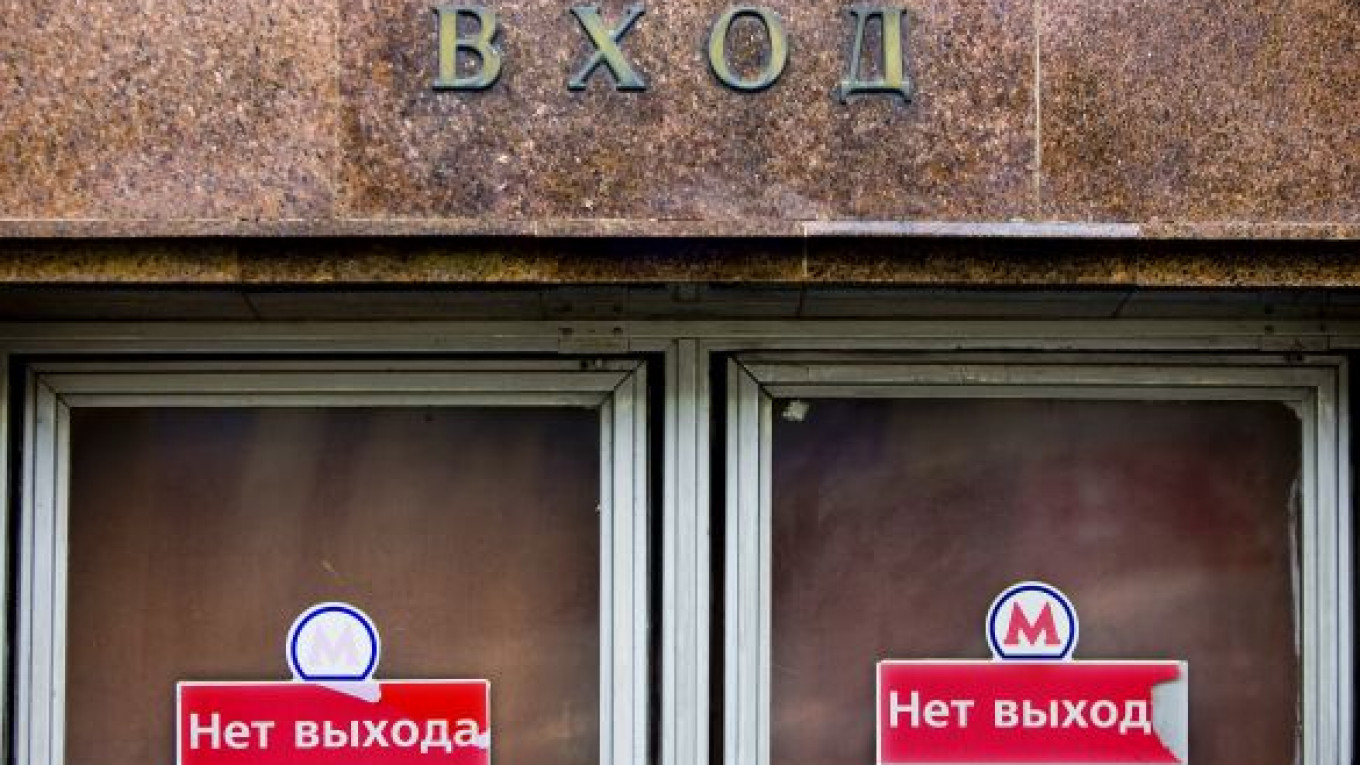Facing an uproar from foreign businesses, the government has promised to scrap a new customs duty on the personal belongings of foreigners moving to Russia.
The Economic Development Ministry said a commission overseeing a new customs union with Belarus and Kazakhstan has acted to amend the regulations, which have resulted in foreign households receiving customs bills running into the thousands of dollars.
The commission on Aug. 17 ordered the three countries' customs services to make amendments, the ministry said in a letter to the Russo-German Chamber of Commerce, a copy of which was obtained by The Moscow Times.
The order came four days after representatives of the Russo-German Chamber of Commerce and other business associations voiced their opposition at a meeting with customs officials in the ministry on Aug. 13, said Vladimir Kobzev, head of the chamber's legal department.
Expatriates and moving companies were dismayed by the new rules, which were introduced without warning when the customs union came into force on July 1.
The rules, which do not apply to diplomats, stipulate that household items, formerly customs-exempt, would be treated like commercial goods upon entry into the country, with a duty of 4 euros ($5) on every kilogram after the first 50 kilograms.
Moving company officials said dozens of clients decided to withhold their shipments or send their goods back home after learning about the extra cost.
Exacerbating the headache, expatriates were forced to pay the duty, which easily reached $20,000 for larger households, in cash at a Sberbank office.
"Many of our clients are afraid to do this," said Norbert Gooren of Dutch moving company AAA Logistics.
A list of exemptions contains 21 items including jewelry, consumer electronics, baby strollers and pets, but excludes most goods that make up the bulk of a household like books, furniture and dishes.
The Economic Development Ministry said in the letter that the list of exemptions, Appendix 4 of the regulation, would simply be supplemented by one item named "other goods clearly designated for private use."
Dmitry Degtyaryov, director of Team Allied Russia, a moving company, voiced concern over the wording, arguing that "other goods clearly designated for private use" could mean a lot of things to different people.
"Definitely, there will be problems," he said.
A spokesman for the Federal Customs Service said Tuesday that the amendment had been prepared and all that was needed for it to come into force for it to be signed at the commission's next session. The spokesman, who refused to give his name, said he did not know when the tripartite body would meet next.
The commission's press service did not reply to e-mailed questions.
But Degtyaryov said he understood that the commission would meet again on Sept. 20.
It was unclear Tuesday if those who already have paid the duty would get a refund. Lawyers contacted by The Moscow Times said it would be difficult for the government to act retroactively in this case.
But Andrew Somers, president of the American Chamber of Commerce in Russia who was involved in lobbying for the scrapping of the tariff, said he hoped that refunds would be possible. "It is expected that people will get a refund," he said.
Somers said he thought that the government's change of tack was logical. The import duty, he said, was an "aberration inconsistent with government policies."
The new rules baffled expatriate businesspeople because the changes came into force at the same time that the government eased some immigration rules in an attempt to attract much-needed foreign specialists. President Dmitry Medvedev had advocated the immigration changes, which allow higher-salaried foreign employees to apply for new three-year visas and work permits rather than the previous one-year permits.
A Message from The Moscow Times:
Dear readers,
We are facing unprecedented challenges. Russia's Prosecutor General's Office has designated The Moscow Times as an "undesirable" organization, criminalizing our work and putting our staff at risk of prosecution. This follows our earlier unjust labeling as a "foreign agent."
These actions are direct attempts to silence independent journalism in Russia. The authorities claim our work "discredits the decisions of the Russian leadership." We see things differently: we strive to provide accurate, unbiased reporting on Russia.
We, the journalists of The Moscow Times, refuse to be silenced. But to continue our work, we need your help.
Your support, no matter how small, makes a world of difference. If you can, please support us monthly starting from just $2. It's quick to set up, and every contribution makes a significant impact.
By supporting The Moscow Times, you're defending open, independent journalism in the face of repression. Thank you for standing with us.
Remind me later.







